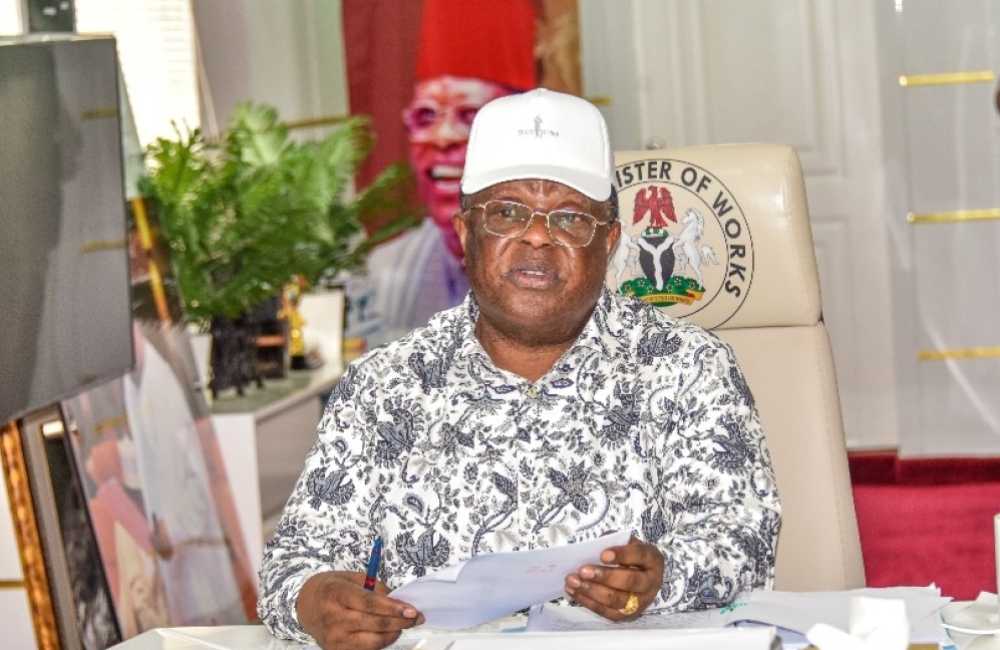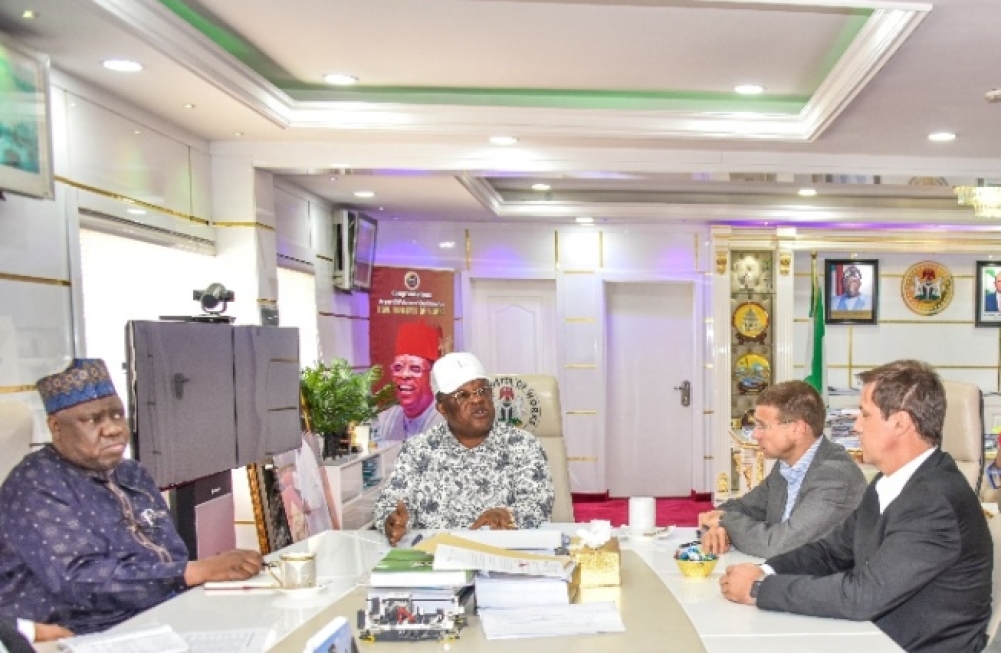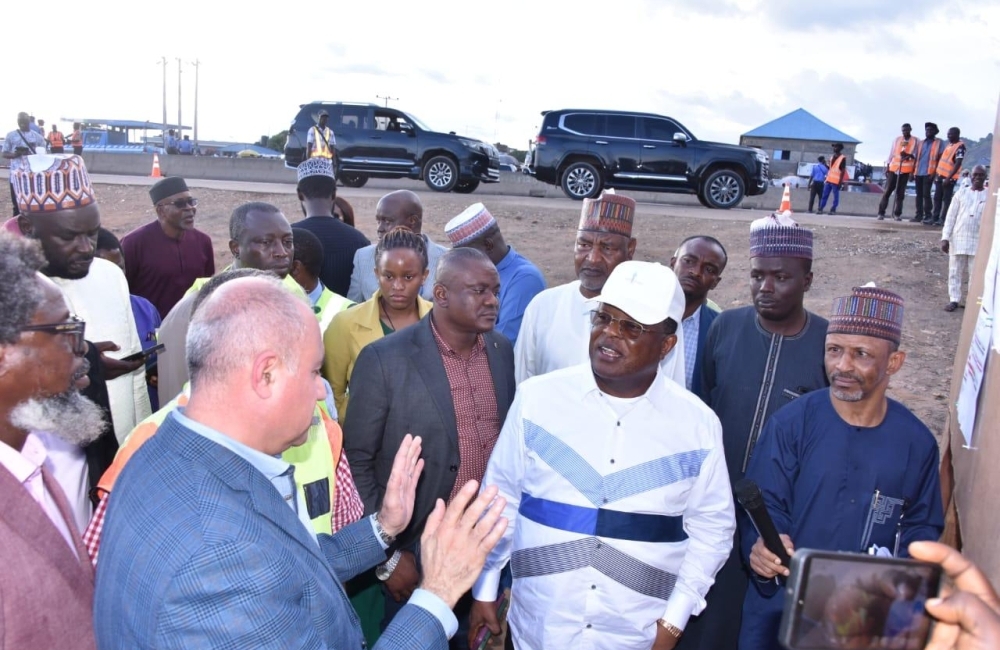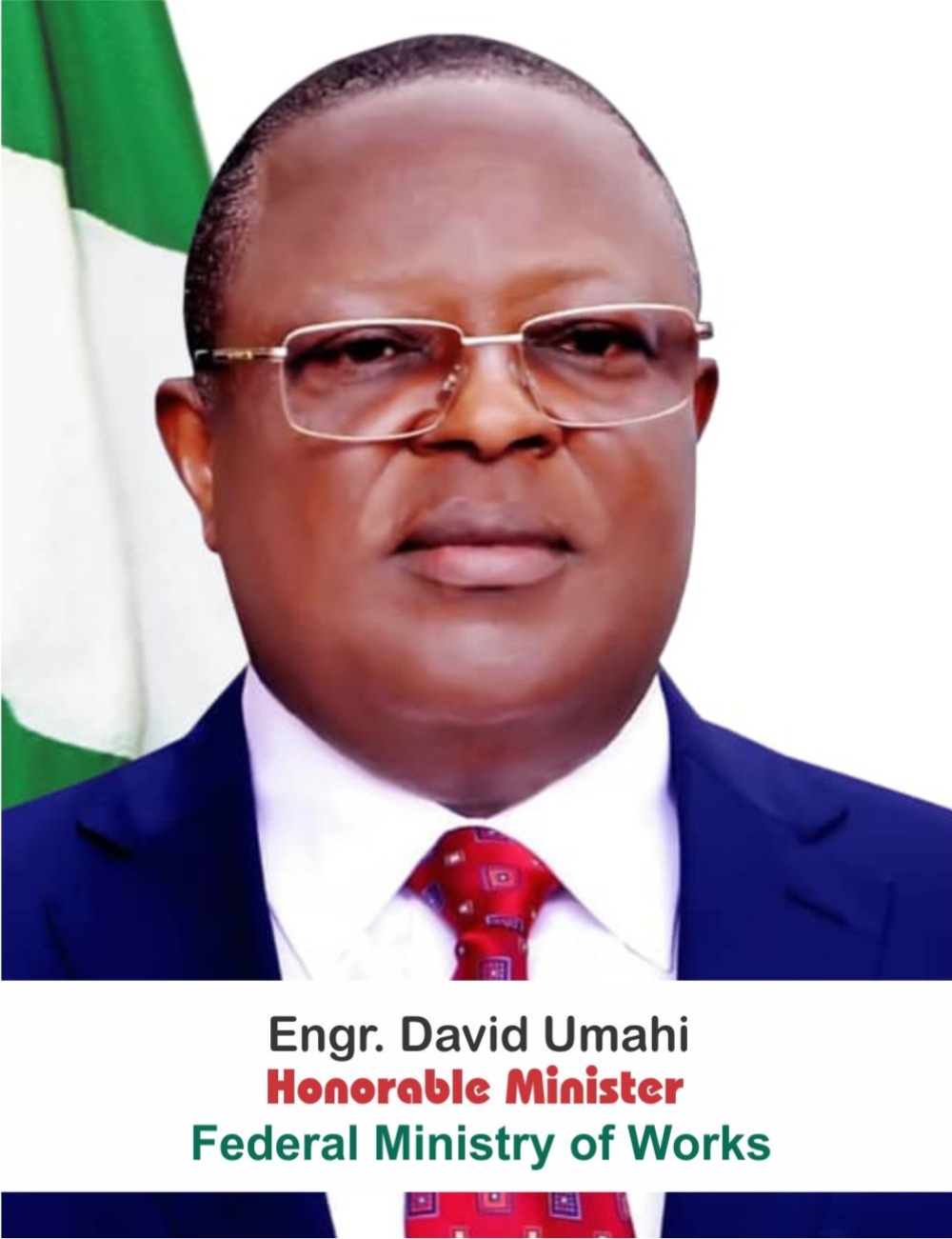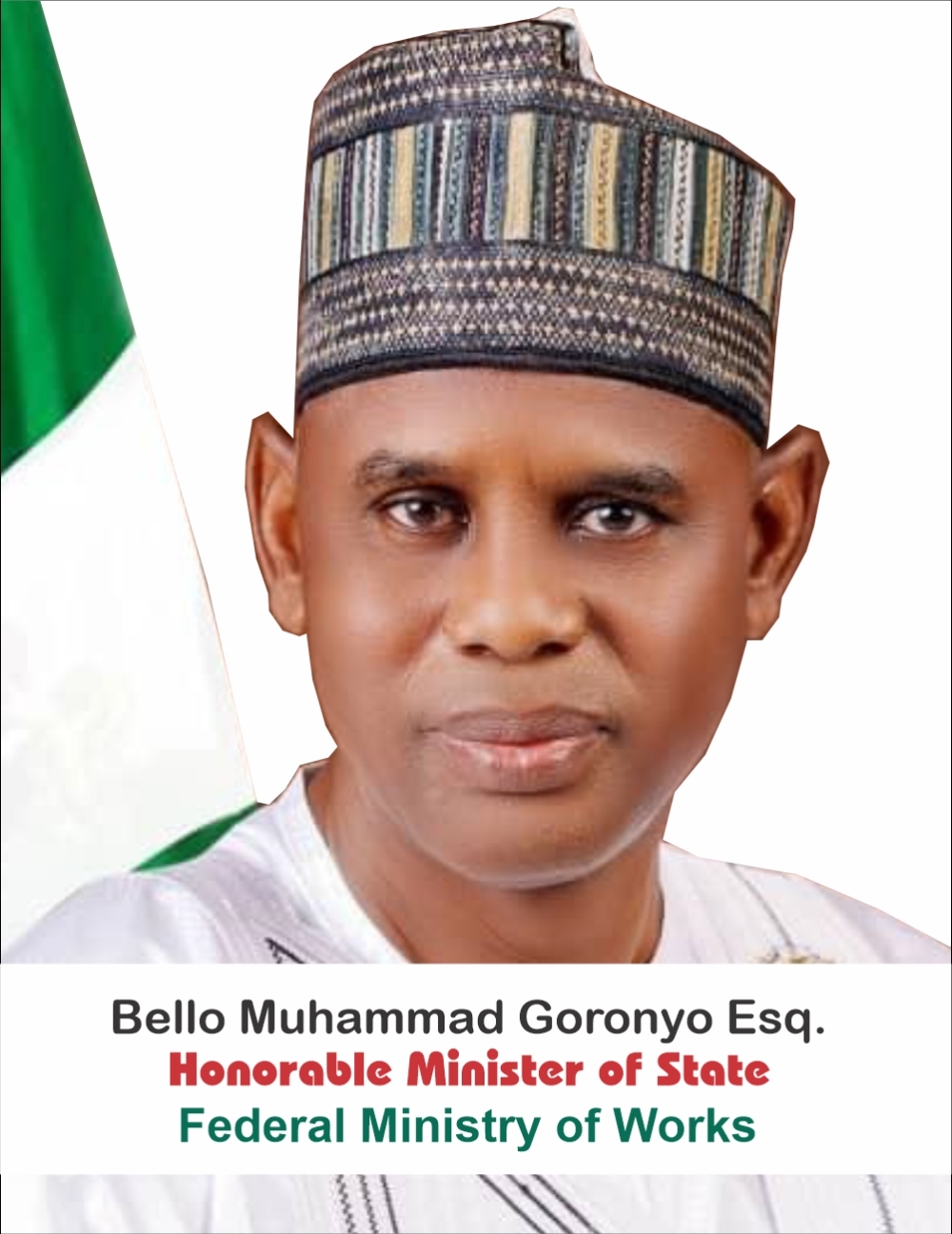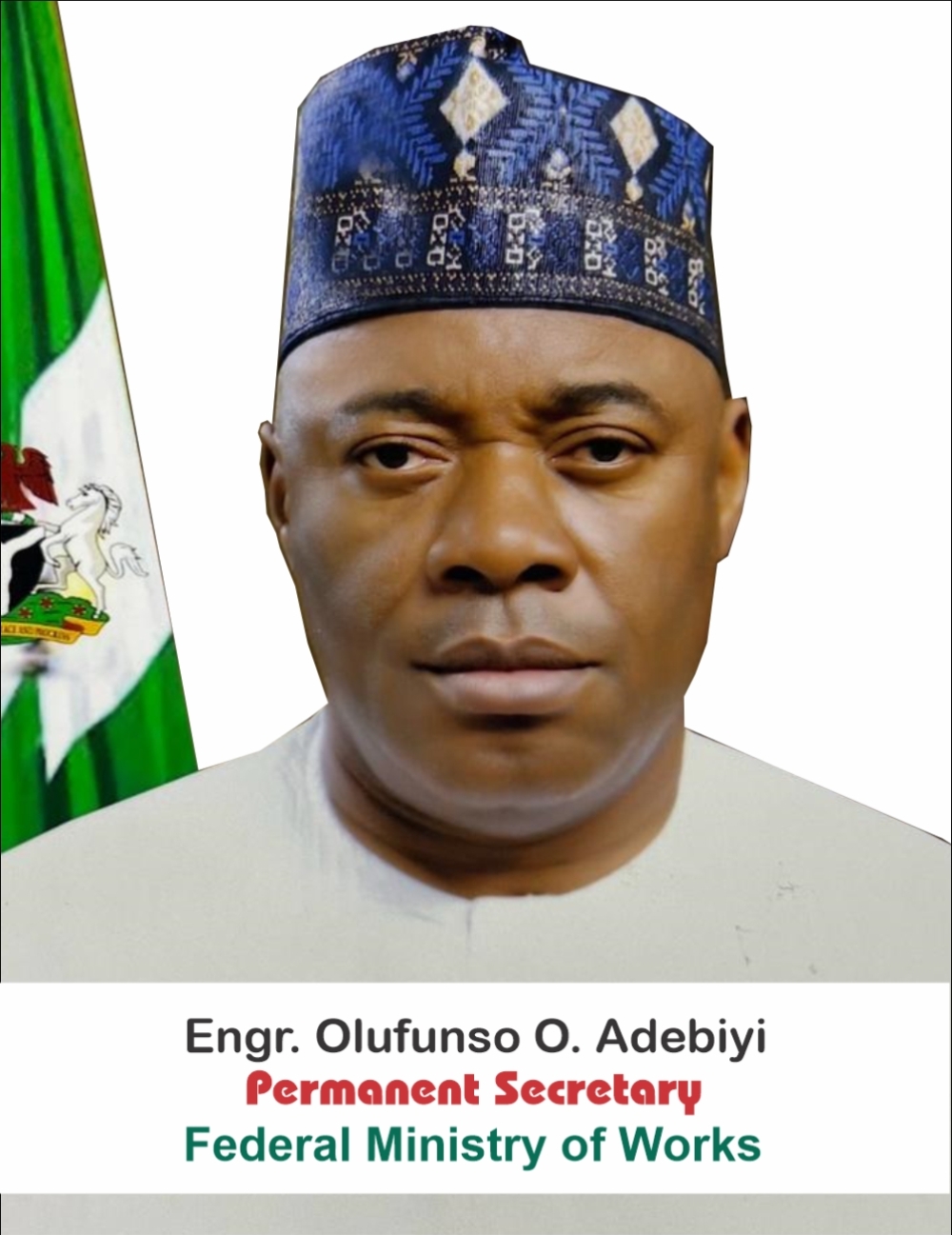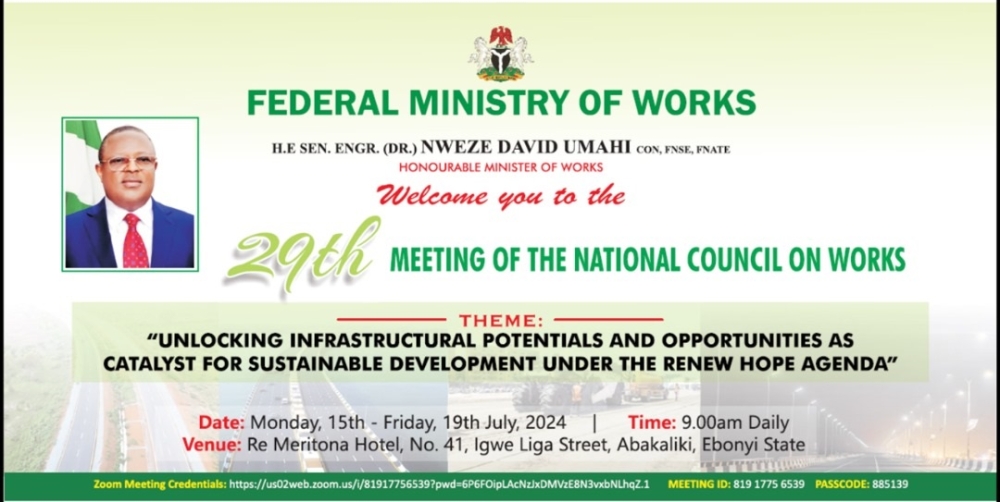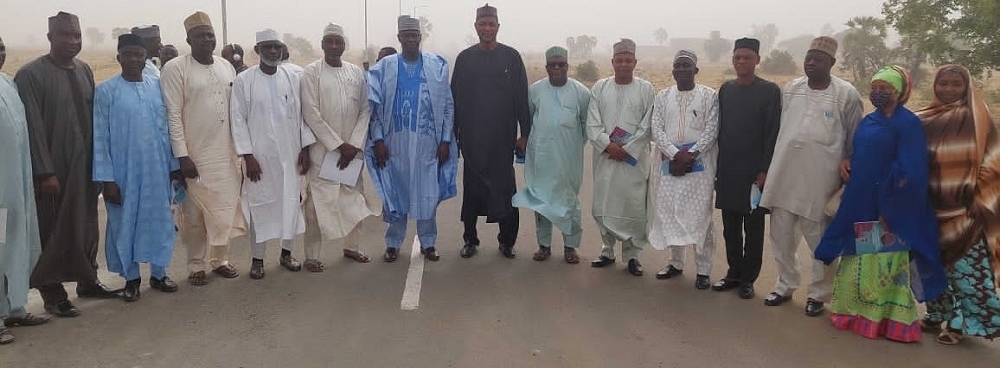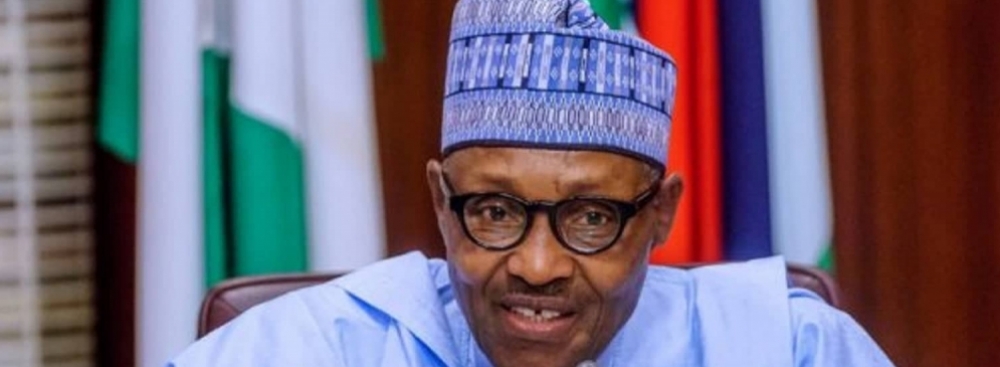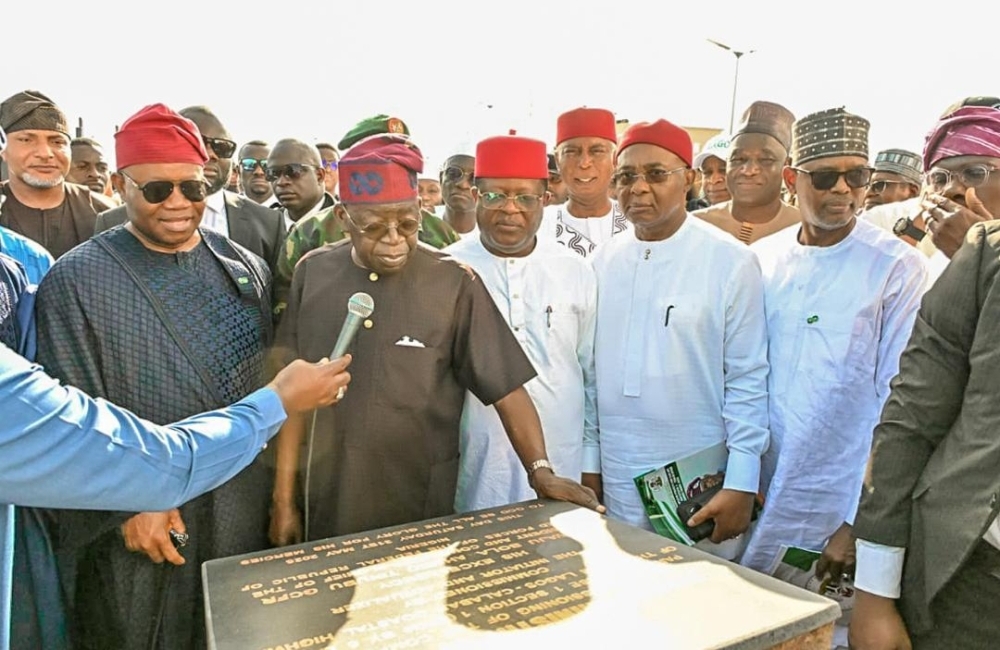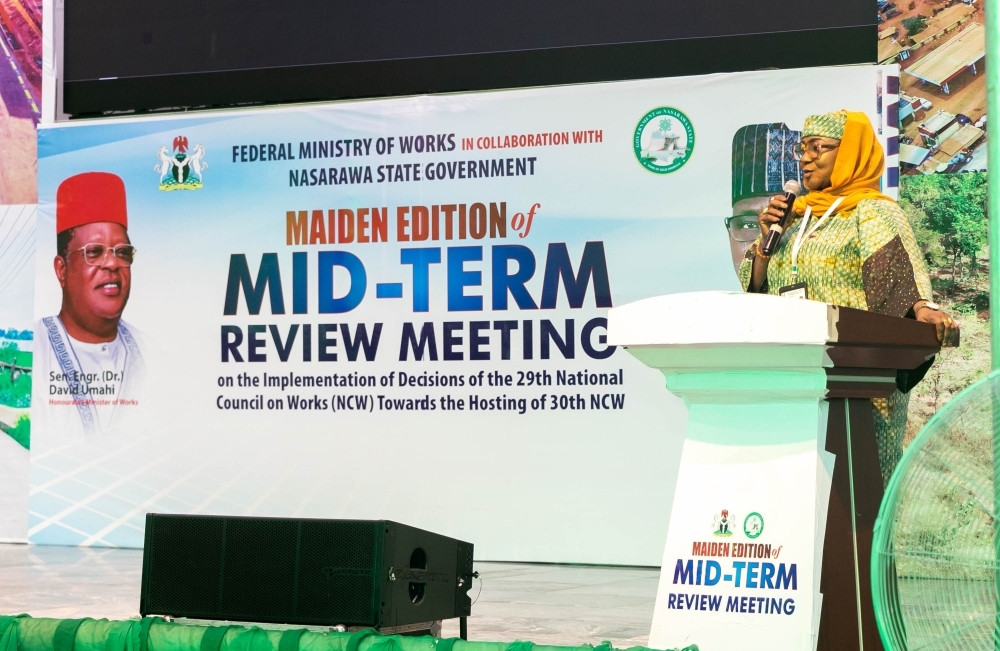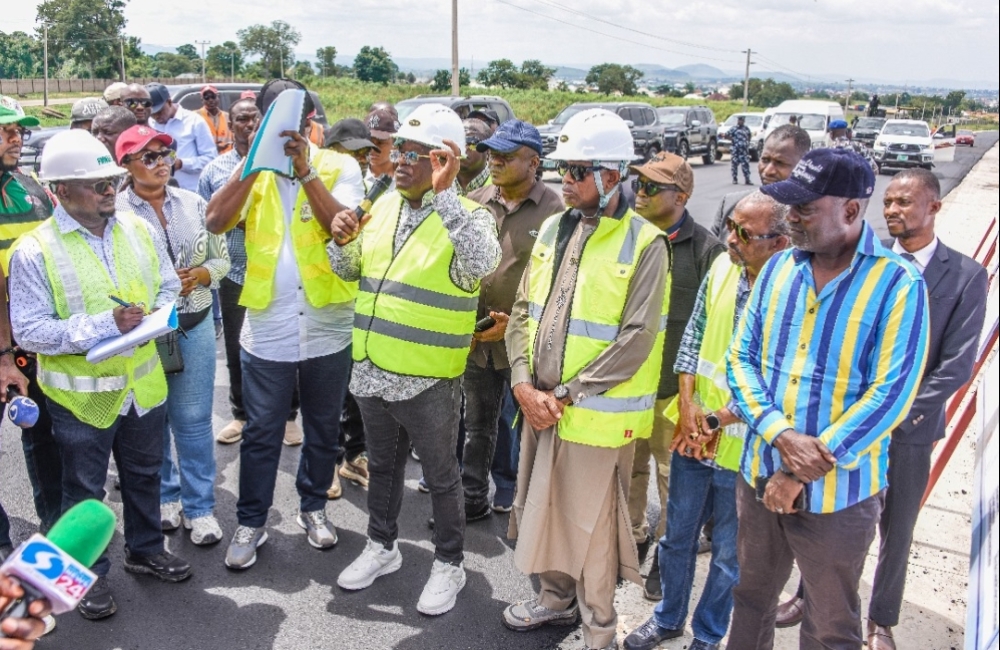
Umahi Inspects Mararaba–Keffi Carriageway, Keffi Flyover Project, Visits Keffi-Nasarawan Toto–Abaji Road
The Honourable Minister of Works, Sen. (Engr.) David Umahi, CON, FNSE, FNATE led a high-powered delegation from the Ministry on an inspection tour of key road projects in Nasarawa State. At the site of the Reconstruction and Expansion of Mararraba-Keffi Dual Carriageway, the Minister expressed serious concerns about the pace of work and lack of adherence to engineering specifications. He informed the contractor, China Harbour Engineering Company that after several warnings, the Ministry is left with no choice but to revoke the contract for the Abuja-bound carriageway. He further directed that it should be awarded to a local contractor with a proven track record, who will be mobilised to complete the concrete shoulders and other pending works. The slow pace of construction had been causing considerable hardship for road users and residents along the corridor.
The Minister was accompanied by the Minister of State for Works, Bello Muhammad Goronyo, Esq, Directors and other staff of the Ministry, representatives of the construction firms handling the various projects, and was met at the Keffi Flyover by the Governor of Nasarawa State, His Excellency, Engr. Abdullahi Sule, Sen. Ahmed Wadata, officials of the State Government, and other stakeholders.
Engr. Umahi emphasised that the Federal Government is committed to delivering high-quality and durable road infrastructure, meeting global engineering standards and capable of serving Nigerians for decades. “We cannot continue to tolerate uncooperative contractors, who delay projects and ignore directives,” he declares.
The Minister reiterated his faith in Nigerian Engineers and contractors, guaranteeing that they would deliver quality jobs comparable to international standards, when given the opportunity. He also warned that any contractor who fails to meet deadlines or flouts directives would have their contracts terminated. Engr. Umahi cautioned that “If by the 15th of December, you do not finish the scope of work, I will terminate the whole contract. We must begin to trust our local contractors. This is about discipline, quality, and integrity,” he stressed.
He went further to say that “when we came on board, we reviewed the method statement for this project because we could not accept a design that would destroy an already consolidated subgrade,” Umahi explained. “We changed the design to include 20 cm of concrete on the inner shoulder and reinforced the stone base with 3.5% cement content. The sections already completed are excellent and will last for a minimum of 50 years.”
The Minister of State for Works, Bello Muhammad Goronyo, Esq, also admonished contractors to show greater seriousness and commitment to the timely completion of projects. He restated that the present administration is determined to deliver quality infrastructure that will stand the test of time, as well as improve the quality of life of Nigerians.
Goronyo added that we must all take our responsibilities seriously. “Contractors must adhere strictly to specifications and timelines, as the Ministry will not compromise on quality and accountability,” the Minister disclosed.
The Director, Highways, Construction and Rehabilitation, Engr. Clement Ogbuagu reported that about 50% of the project has been completed and assured that the first phase will be delivered by December 15, 2025.
At the site of the Emergency Repairs of the Damaged Keffi Flyover, the Minister, accompanied by the Nasarawa State Governor, said that “two months ago, a tragic accident damaged part of this flyover, leading to loss of lives. We reported it to Mr. President, who immediately approved funds for its repairs.”
“Today, we can see the quality of work being done. They are recasting the entire slab, not just the affected part at a very conservative cost of ₦1.5 billion,” he added.
On the soon-to-be-awarded rescoped Keffi-Nasarawan Toto-Abaji Road, the Minister informed the Governor and his entourage that the original contract sum of ₦73 billion covered an initial 43.65 km stretch. However, the initial scope has now been reviewed and extended to 137 km, reaching Abaji town in the FCT, following the directive of President Bola Ahmed Tinubu, GCFR, under a special funding arrangement.
In his remarks, His Excellency, Engr. Abdullahi Sule commended President Tinubu and the Minister of Works for their interventions in the State, especially the Keffi Flyover, which was recently damaged by an overloaded truck.
The Governor further noted that the Keffi–Nasarawan Toto-Abaji road is crucial to the economic development of both Nasarawa State and the Federal Capital Territory, as it serves as a major gateway for goods, services, and people. It also serves the biggest Lithium Factory in Africa, recently commissioned by Mr. President.
Senator Wadada, representing Nasarawa West and other stakeholders commended the Minister for his dedication, describing him as an “uncommon performer,” whose hands-on approach reflects the Renewed Hope Agenda of President Tinubu. They also applauded the President for being “a leader for all.”
Engr. Umahi reaffirmed that all ongoing Federal projects will now adopt the revised engineering method statement, which emphasises, complete milling of old pavement, reinforcement of subgrade with stone base and cement, 20 cm concrete shoulders, and proper drainage and slope control. He also stressed that these specifications are designed to guarantee a minimum lifespan of 50 years for the reconstructed roads.
“No contractor, no matter how connected, will be allowed to compromise on quality. Mr. President has done his part by approving funding; it is now our duty to ensure delivery,” the Minister emphasised.
Mohammed A. Ahmed,
Director, Press and Public Relations.
12th October 2025.
Close











